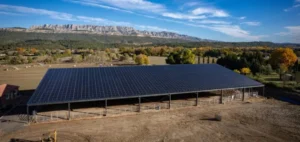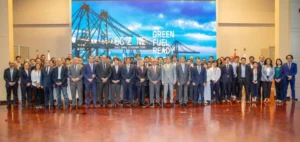Chaberton Energy, a Maryland-based solar energy developer, has launched construction of the Lime Kiln project, a 2.9 MW facility located in Fulton, Howard County.
The project is part of the Maryland Community Solar program, which enables local residents and businesses to benefit from lower-cost electricity, without the need to install solar panels on their properties.
Lime Kiln is expected to generate 4.6 million kilowatt-hours per year, equivalent to the consumption of around 400 homes.
Chaberton Energy recently achieved a major milestone by reaching 100 solar sites under contract in less than four years, reinforcing its position as one of the leading players in community solar energy in the United States.
The Lime Kiln project is part of a broader strategy to develop sustainable energy infrastructure in Maryland and beyond.
For example, Project Catherine in Cooksville, also in Howard County, is another key Chaberton project.
This 4.3 MW facility, spread over 19 acres, supplies electricity to St. Mary Coptic Orthodox Church in Cooksville, Maryland.
Mary Coptic Orthodox Church, Loyola University, and the local community, while combining several energy distribution models.
Partnership and local impact
The Lime Kiln project is being developed in collaboration with Pivot Energy, a company specializing in the operation of renewable energy projects. Lime Kiln occupies 15 acres of a 57-acre site and includes landscaping designed to preserve local biodiversity.
The project is scheduled for commissioning in the first half of 2025.
This project, along with other recent Chaberton Energy initiatives such as Project Catherine, strengthens the energy infrastructure in the region while respecting local specificities. With over 650 MW of community solar sites under development across the United States and Italy, Chaberton Energy continues to expand its portfolio, focusing on projects that offer sustainable and economically viable energy solutions.
The company relies on rigorous site selection, deep community engagement and world-class in-house engineering to maintain its rapid growth.






















